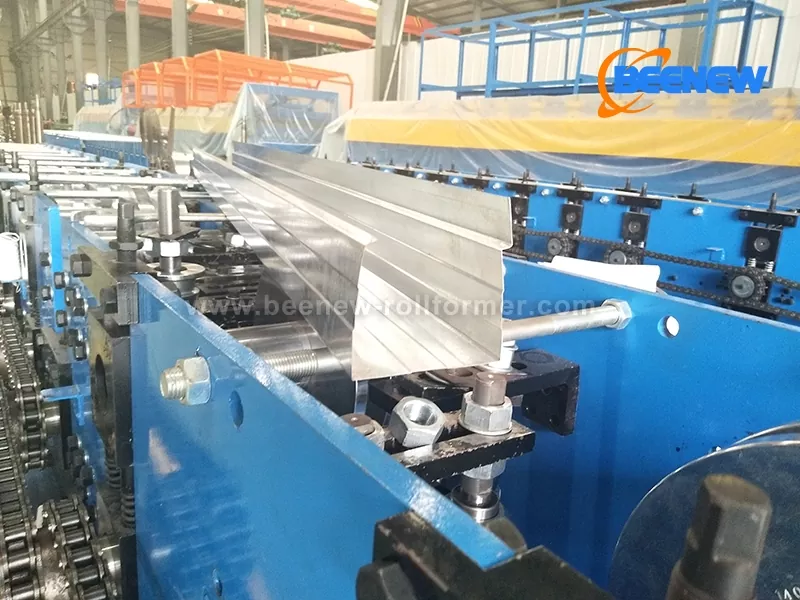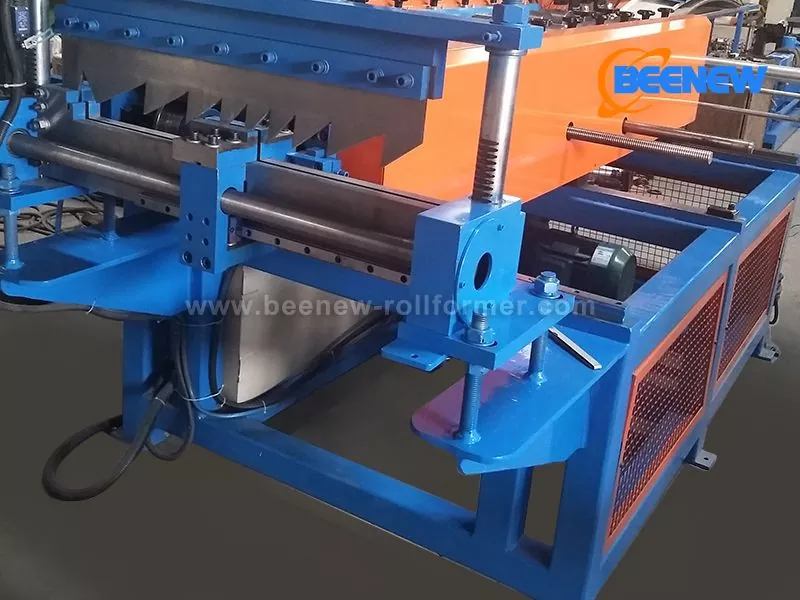Can Intelligent Variable-pitch Rollers Reduce Material Waste by 20% in Custom Profile Manufacturing?
2025-07-01
The Z-shaped brackets for building curtain walls, the reinforcing beams for car seats, and the C-shaped purlins for photovoltaic brackets - these metal profiles of various shapes, the traditional production method is like "drawing straight lines with a ruler and doing curved work", and the material utilization rate often hovers around 75%. Beenew Machinery's newly launched Roll Forming Machine, equipped with an intelligent variable distance roller system, is rewriting the game rules with the wisdom of "dynamic adaptation" By adjusting the roller spacing in real time, the material waste in the production of profiled materials can be reduced from 25% to within 5%, opening up a new green path for customized metal forming.
The revolution from "fixed molds" to "flexible deformation"
The roller spacing of traditional roller presses is entirely adjusted manually. When changing models, the machine needs to be stopped and the molds disassembled, which takes 2 to 4 hours. Not only does the debugging error often lead to more than 10% waste of leftover materials. In the past, we were like "making cakes with a rolling pin". The molds were fixed, and complex shapes could only be squeezed through multiple passes. It was common for the materials to be repeatedly stretched and torn. Mr. Li, the R&D director of Beenew, recalled, "Now our smart rollers can automatically extend and contract like 'Transformers', completing the formation of complex cross-sections in one go, with as little leftover material as if it had been' precisely cut '."
Laboratory comparative tests show that when producing a certain automotive chassis reinforcing beam, traditional equipment requires 1.2 meters of raw materials to obtain 1 meter of qualified product, while Beenew's intelligent roller press only needs 1.05 meters, and the material utilization rate has jumped from 83% to 95%. Based on an annual output of 100,000 pieces, this single model can save the enterprise over 2 million yuan in steel costs.

"Material Conservation Expert"
Green building: The roller pressing line customized for a modular house enterprise in Singapore increased the recycling rate of waste materials from 15% to 92% during the production of exterior wall insulation keels. As a result, the enterprise gained additional points for LEED green building certification.
New energy vehicles: After a leading battery manufacturer adopted it, the raw material consumption for producing battery pack side beams was reduced by 18%, and a single production line saved 400 tons of steel annually, which is equivalent to reducing 760 tons of carbon dioxide emissions.
Agricultural equipment: A certain agricultural machinery cooperative in Inner Mongolia reported that after replacing the intelligent roller press, the amount of waste used to produce corn harvester knife frames dropped from 300 kilograms per ton to 50 kilograms. The money from recycling and reselling the waste is enough to cover one-third of the equipment's supply.
We even received orders from musical instrument factories. Engineer Li smiled and said, "They want to use our machines to produce guitar neck stiffeners, claiming that traditional stamping wastes more wood than it does - this precisely shows that the pursuit of material conservation has no industry boundaries."

Let every gram of metal reach its maximum value
For the Beenew team, the ambition of the Roll Forming Machine is not limited to "saving materials". They are developing a "roller Health Management System", which empresses vibration sensors inside the roller shafts to monitor the wear status in real time. "Future devices might be able to 'take the pulse' like 'old traditional Chinese medicine practitioners'." " General Manager Chen of the company envisioned, "When the surface roughness of the roller is detected to exceed the standard, the pressure distribution can be automatically adjusted, doubling the mold's lifespan and further reducing the overall cost."
This "from production to maintenance" full-chain optimization concept is driving Beenew's transformation into a provider of intelligent metal forming solutions. They build digital twin models for each device, and customers can view real-time material utilization rates, energy consumption curves and other data through a mobile phone APP. Twenty years later, when this roller press is recycled after fulfilling its mission, its "electronic resume" will inform downstream enterprises that it has helped 37 companies reduce carbon emissions, equivalent to planting 20,000 trees." Mr. Chen said.
At present, Beenew has built two intelligent roller press production lines in China, with an annual production capacity of 500 units. The products are exported to 20 countries including Germany, Brazil and India. As the global manufacturing industry's pursuit of "zero waste" becomes increasingly urgent, this "Made in China" roll forming machine is enabling more customized production scenarios to bid farewell to the "era of material waste".
 English
English lugha ya Kiswahili
lugha ya Kiswahili  Монгол хэл
Монгол хэл  Español
Español  Português
Português  русский
русский  Français
Français  日本語
日本語  Italiano
Italiano  한국어
한국어  Malay
Malay  हिन्दी
हिन्दी  Türkçe
Türkçe  العربية
العربية  Indonesia
Indonesia  تمل
تمل  український
український  فارسی
فارسی  Latine
Latine  Azərbaycan
Azərbaycan 



